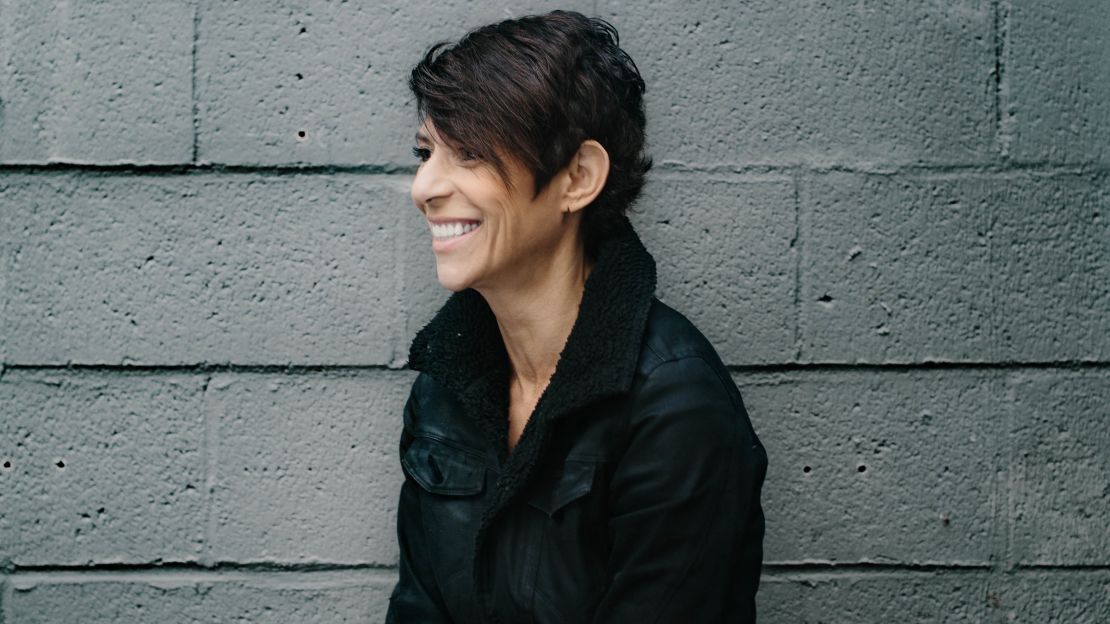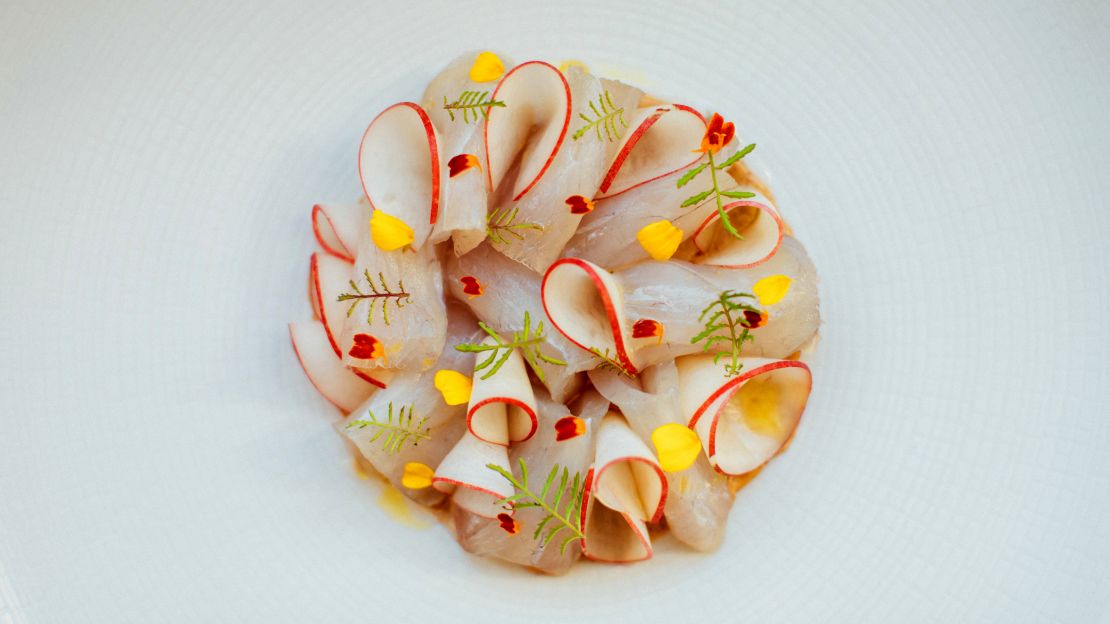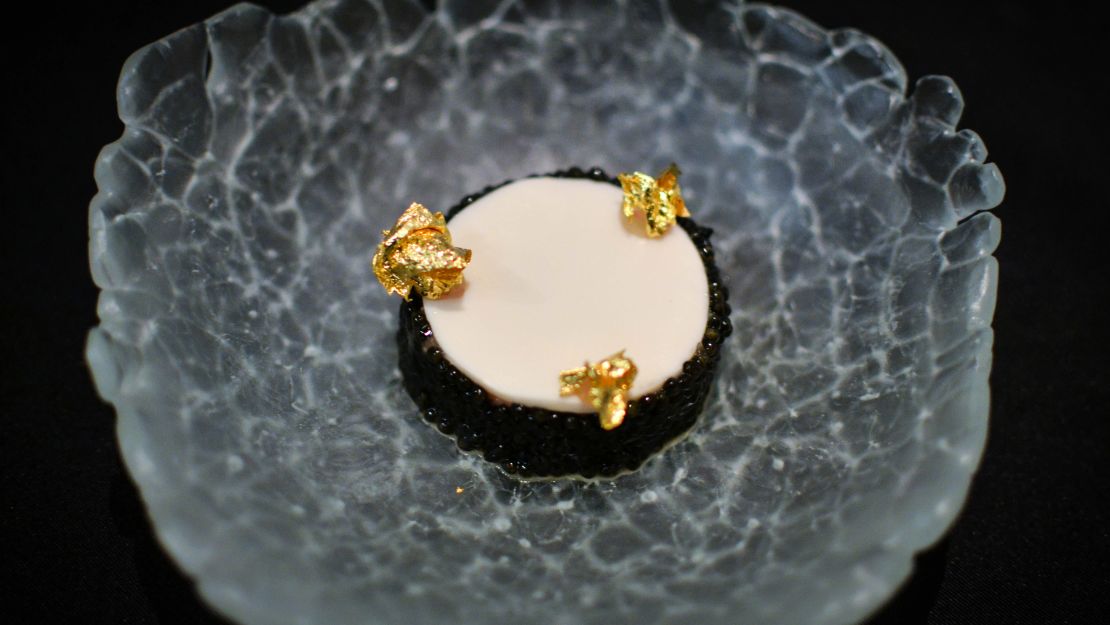Dominique Crenn made history yesterday. Awarded three Michelin stars for her eponymous San Francisco restaurant, Atelier Crenn, previously a two-starred Michelin restaurant (since 2012, in fact), Crenn is the first American woman to hold such high honors.
Only 14 female chefs from other countries were awarded two and three stars before her, including Elena Arzak, for her namesake restaurant in San Sebastian, and Clare Smyth from Restaurant Gordon Ramsey in the United Kingdom.
The impressive accolade certainly isn’t the first mark of Crenn’s success in the culinary world, but it is the biggest and baddest – at least in these circles. Her wine bar, Bar Crenn, only open since March of this year, was awarded one Michelin star, another notable badge of distinction for the accomplished chef.
And chef she is. Period.
When Dominique Crenn was named the world’s best female chef by the prestigious World’s 50 Best Restaurants List in 2016, she was honored.
She was also outraged.
In her eyes, that extra word – female – was unnecessary and irrelevant. Creating a separate category for women only served to diminish females even more than the male-dominated industry had already done.
“They say this is to give females a voice,” explains the French-born, San Francisco-based chef, sitting inside Bar Crenn, which opened in March 2018. “We have a voice. We’re already here. We’ve been here.”

The menu at her flagship spot has a strong focus on seafood and vegetables. Through preparations such as sea urchin and geoduck tart or wagyu butter on brioche, Crenn’s dishes evoke the memories of her time in Brittany, blending upscale French technique with fresh, California ingredients. It continues to improve each year – earlier this May, Crenn won her first James Beard award for “Best Chef: West.”
“Love and respect for art and poetry drive the dining experience at Dominique Crenn’s high-style restaurant,” wrote “San Francisco Chronicle” restaurant critic Michael Bauer in a 2017 review.
“The tagline is ‘poetic culinaria,’ and the menu consists of dramatic verses. You’re left wondering what lines like ‘Watching the beast rest beneath the leaves’ or ‘There came a wave of an oceanic delicateness’ mean — until the beautifully manicured and whimsically conceived combinations arrive.”
By all accounts, the stars in 2012 put her on the map. And in the years since, she has used that recognition for good: to develop a platform upon which she has become one of the food industry’s most vocal activists.

Whether to spearhead philanthropic efforts, buy ingredients directly from Central American farmers, or create opportunities for – and become a strong proponent of – like-minded women in her field, she has taken seriously her role as more than just a chef. And she recognizes that it’s not just her talent – but the acknowledgment of said talent – that has provided her with those opportunities.
Though her status as “the first” placed her gender at the forefront with the Michelin Guide – which started doling out stars to restaurants nearly a century ago – the award felt different to Crenn. Michelin is less a competition, she explains, and more a guide that lets you know what to expect based on the rating.
“The guide doesn’t necessarily mean that a three-star is better than a one-star. It’s just about how the restaurant is set up,” Crenn says, and with Atelier Crenn’s rise from two to three stars, it appears that the Michelin Guide has finally recognized the restaurant’s set-up as deserving of three stars.
Diners at Atelier Crenn will be presented with a fully developed wine program and expert hospitality in an elegant, thoughtfully designed interior. This is all in addition to the polished, modernist French cuisine offered in a multi-course tasting meal. An experience, not just a meal.
“The Michelin Guide, for me, it’s my history,” she says.
In an interview with ‘The New York Times,’ Crenn responded to the news: “It’s amazing,” she said. “Amazing for my team at Bar Crenn and especially at Atelier Crenn. I’m humbled. We worked so hard for so many years and this is a dream. Today we’re celebrating, but tomorrow we go back to work.”

Raised just outside of Paris, Crenn spent much of her childhood visiting the coastal region of Brittany, where her parents had grown up in farming families. Both rural and on the water, she describes it as a rustic, magical place, where she gained an appreciation for fresh, local ingredients and good food. And dining out during her young life was common.
“My father’s best friend was a food critic, so I went with them to eat everywhere,” she recalls. “Going out to restaurants was just part of the culture in France.”
She cites those meals, and that region, as chief among her earliest influences, though at the time she had no plans to become a chef.
After studying economics and international business at university, Crenn moved to San Francisco and worked a series of odd jobs – French tutor, babysitter, marketing – before falling in with the local restaurant crowd. It wasn’t until she worked the line at the infamous Stars Restaurant when she was 26 that Crenn was truly hooked.
“We had to create the dishes,” recalls the chef, explaining that it was up to the commis’ – prep cooks, essentially – to come up with their own menu items with help from the sous chefs. “You got to go back to your own heritage. That was very powerful to be able to create something personal at such a young age.”
It informed what she would eventually do at Atelier Crenn, which she opened in 2011 after running kitchens around the world, from New York to Jakarta, Indonesia. A year later, she would get the Michelin stars.

Yet Crenn admits that achieving recognition comes with a responsibility: to use the platform in a positive way to affect change.
“I’m in an industry that has a lot to do with humanity,” says Crenn, who describes what she’s doing as much about activism as it is about feeding people. “When you have food, you have people, when you have people, you have to think about the planet. Food defines your society, how humanity is going to be.”
Crenn believes that she has landed in perhaps the most important industry in the world: one that touches almost every field and issue – politics, farming, labor, climate change. And, of course, discrimination.
“We’re cooking, we’re growing, but we have to be talking. We have to be out there and have a voice.”
Last year, Crenn was instrumental in creating the Root Project with Michelle Jean and a small group of other chefs to assist farmers in Haiti.
She traveled hours through the mountains to go directly to the farmers, to help plant trees for coffee and cacao. Working in partnership with Pan American Development Foundation, Crenn felt it necessary to see exactly where aid was actually going. Now, she buys that coffee to use in her businesses.
And when the fires broke out in Northern California this past Fall, Crenn – whose farm in Sonoma was miraculously untouched as flames blazed around it – was among the first to spearhead relief efforts for her neighbors by coordinating chefs to cook for displaced workers.
But perhaps the best use of her voice goes back to that whole female thing. She works hard to lift up and promote women. There’s a huge imbalance, she says, that despite the #metoo movement, is not shifting quickly enough.
In March, she kicked off a dinner series called “Women in Food” at her more casual Petit Crenn in the Hayes Valley neighborhood of San Francisco. Showcasing a dozen female chefs from around the world, it will continue through November. The dinners sold out within two minutes; there were six hundred people on the wait-list.
“See, that tells you people are interested, not because we are women, but because of the voice we are bringing out there.”
A voice that is, among other things, necessary and relevant – no matter the category.
Now that Crenn holds the distinction of being the first female chef in America to earn three stars, she plans to further use her voice for good: “It’s a platform I now have; I must inspire others and make a difference.”
Stacey Lastoe contributed additional reporting to this story.
Amanda Gold is a San Francisco-based food writer and producer, who also consults with food businesses and chefs on content and media strategy.
















